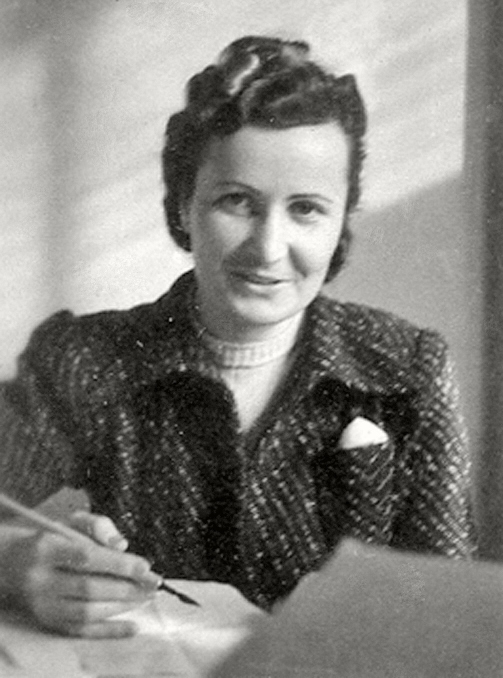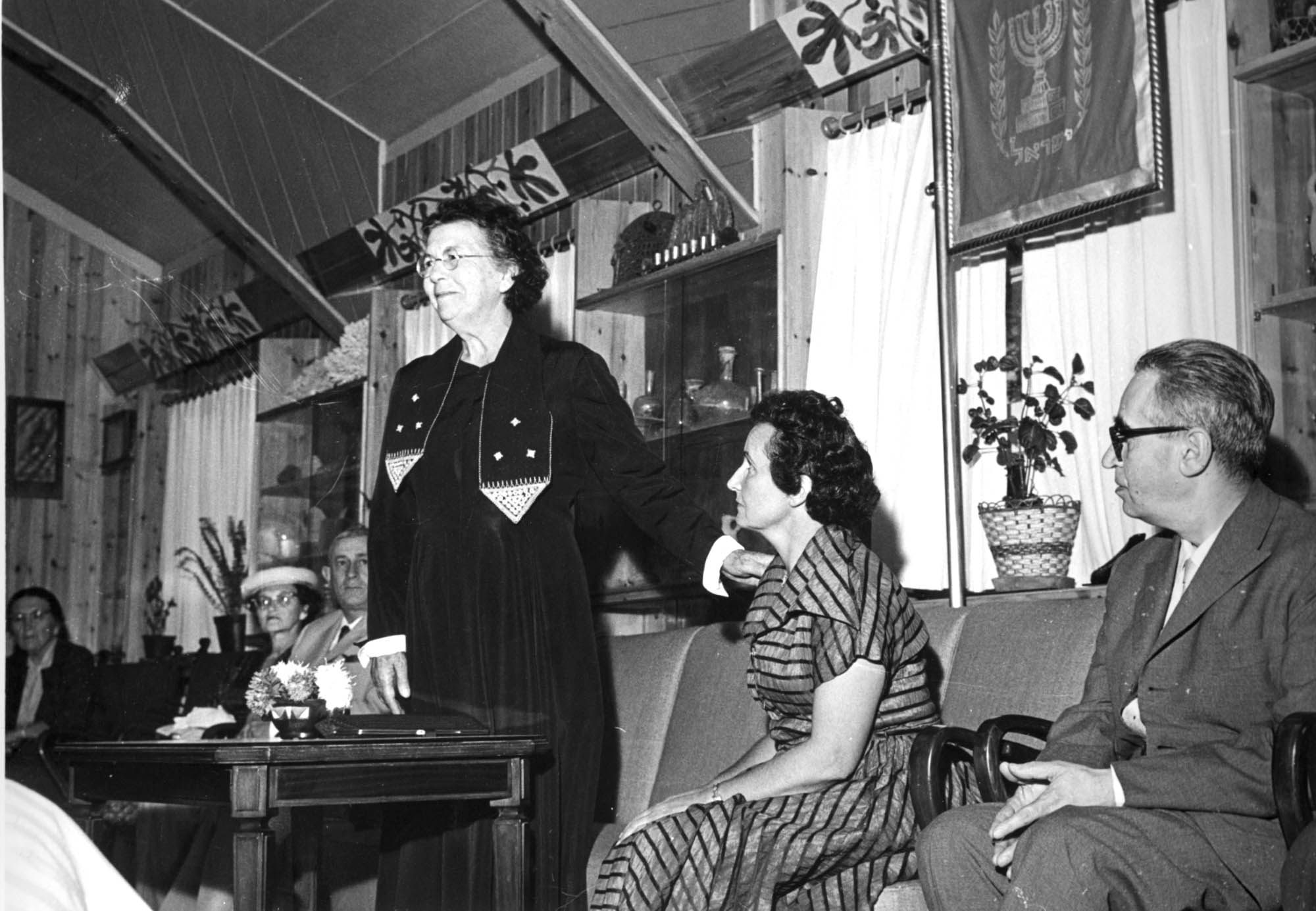When a mother leaves home, the whole house is turned upside down. This premise has served as the basis of a reality series, in which two families swap mothers, changing everything about their respective homes including rules, routine and restrictions. The assumption was that while switching fathers would change little, the moment a family is assigned a new, surrogate mother nothing about the household would remain the same. In this TV series, the mothers came home after a week, reuniting with their biological, nuclear families, with tears in their eyes. Their children were forced to learn how the household would be run by another woman, and the alternate mothers themselves learned an important lesson in parenting. Lena Küchler-Silberman was a real-life permanent surrogate mother, and for hundreds of boys and girls this was no reality show. It was reality.
Lena Küchler-Silberman was a teacher, educator and psychologist, but more than anything, she was a mother. She was born in 1910 and grew up in Wieliczka, Poland. After completing her studies in the Hebrew gymnasium in Kraków she went on to study philosophy, psychology and pedagogy. During the Holocaust she lost her own daughter and saved the children of others from death. After the Jews in her city were deported to Bełżec, she managed to make her way to Warsaw where she lived under an alias, which she used to help smuggle children out of the Ghetto. A well-known story tells how in June 1942 she found a live baby lying on top of the corpse of its mother. Tucking the baby under her coat, she smuggled it out of the Ghetto. She found it refuge in a monastery, even though they initially refused to accept a circumcised child.
After the war, she travelled to the Jewish council in Krakow where she met young children who had lost their families. She took them in, giving them a home in a house she found in Zakopane. From there they made their way to Czechoslovakia, France, and finally, in 1949, Israel. There the children were taken in by Kvutzat Shiller. Lena lived in Tel-Aviv, where she taught psychology and education. She kept in touch with her adopted children even after they had grown up. In 1987, Lena passed away.
In studies of women in the Holocaust, figures such as Lena Küchler-Silberman are referred to as “surrogate mothers”: women who took the place of absent biological mothers, assuming a mother’s basic, traditional roles: feeding, caretaking, supporting, educating and above all showing unconditional love. While Lena Küchler was not the only “surrogate mother” in the Holocaust, she was certainly the most famous. These mothers included educators, doctors and guides. They included figures such as Fritzi Zucker who dedicated her life to the children of Theresienstadt, and Dr. Tova Samhowitz, a doctor from Warsaw who established a children’s and women’s hospital in the Drancy concentration camp in France and who devoted herself to her children, even joining them in their deaths. Some women have passed into the realm of myth: for example, Stepha Vilchinska, the famous educator in the orphanage of Janusz Korczak who also stood by her pupils and met her death at their side. These women were all surrogate mothers: some for hours, days, or months—others for just a minute. Most have been forgotten.
Lena Küchler-Silberman wrote one of the first books about women and family in the Holocaust. My Hundred Children was first published in Hebrew in 1959 and became a bestseller. Reprintings quickly followed, and the book soon became part of a trilogy when Lena Küchler-Silberman wrote The Hundred Coming Home [ha-Mea Li-gvulam] and My Mother’s Home [Beit Imi]. Her book has become canonical and a source of inspiration and it seems that this will continue to be the case even in generations to come. A few years ago, for instance, a student told me that she had read My Hundred Children when she was still in 3rd grade. Two years ago, it was included in the Israeli Ministry of education’s March of Books program, and the story of the children who turned to their pasts was turned into a documentary film. The book is still relevant today.
My Hundred Children ends on a positive Zionist note. Having lost their biological parents, the children found a new mother who brought them to Israel. The book’s afterword is a faithful representation of the success of Israel’s “melting pot” program, which transformed the children from so-called “human dust” into humans, as if all was forgotten. The girls grew up to be women who studied traditional female trades, becoming nurses and kindergarten teachers. The boys grew up to be men, some occupying positions of leadership, some sadly met their deaths defending their country. A new chapter of encouragement and hope was added to the story of the mother and her children, when Lena Küchler-Silberman, at age 47, gave birth to a baby girl. As she told reporters at the time, this was her one hundred and first child.
In 1962, Lena Küchler-Silberman won the President's Wife Award and the mother of the year prize on behalf of the Hebrew Women’s Organization, which she was awarded in the presidential hut in Jerusalem. Among the speakers at the ceremony were poet Lea Goldberg, Rachel Katznelson-Shazar, and the popularly known “mother of sons” Rivka Guber. Lena Küchler-Silberman spoke about the profound significance of motherhood for women. The respect paid to Küchler-Silberman crossed political boundaries, but did not outshine the esteem for biological mothers. It was a time when politics was intimately connected to political parties, movements and groups, to an open, and straight-forward lifestyle, determining what was supported and rejected, and marked by argument and debate. In such an environment, then as today, the surrogate mother had no chance.
Holocaust and Heroism Memorial Day in Israel is an opportunity to speak openly about acts of heroism performed by women during the Holocaust and a time to shed light on the many ways they resisted the dehumanization imposed upon them by the German conquest of Europe in World War II. But the stories of women in the Holocaust are no less important on other days of the year. For example, Lena Küchler-Silberman’s story of her one hundred children is relevant to an educational discussion on Family Day; it is an opportunity to discuss another kind of family, one different than the norm. As Rachel Yannait Ben-Zvi said about My Hundred Children “Every person should read this book like a devout Jew reading from his prayer book.” While in Israel the book became a characteristic Zionist tale, at the end of the day, the story of this heroine is first and foremost a tale about humanity.
For more about Lena Küchler-Silberman and her reception in Israel see Dr. Sharon Geva’s book To a Sister Unknown: The Holocaust Heroine in Israeli Society and her blog To the Bookshelf of History. Dr. Geva is currently editing a volume of articles on the subject of Holocaust education—The Holocaust: A Moment of Education.








